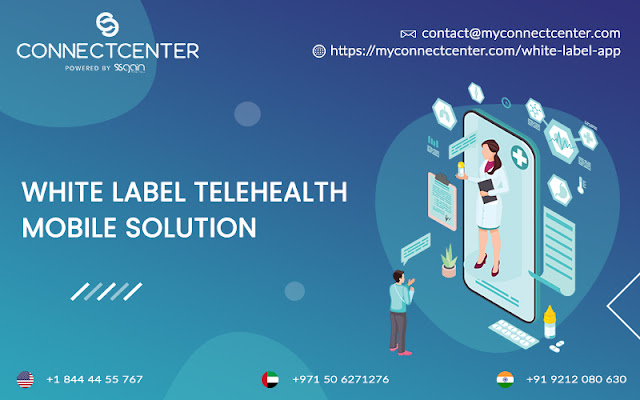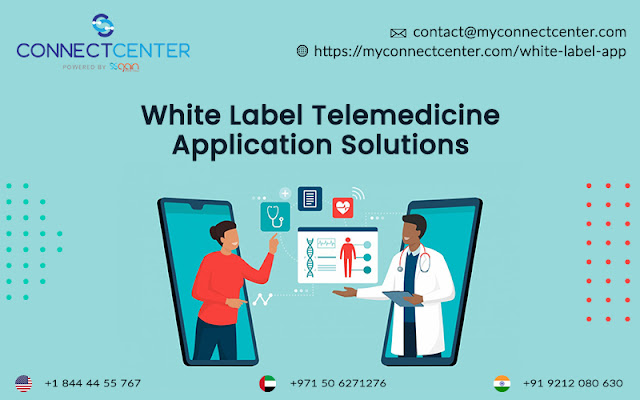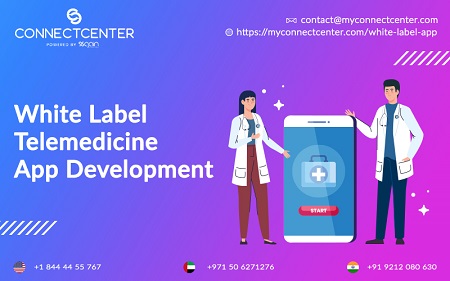What is a White label mobile app?
A white label mobile app is one that has been developed by a white-label platform or a private label development business, then rebranded by another company.
A white label wellness app, which is the leading wellness app in 2021, is commonly provided to users by application development companies, such as mobile and web app development companies.
What is the method of developing a white-label mobile app?
White label wellness app development may be done in two ways. White label web apps may be developed in the following scenarios:
1. White label wellness app developers reuse the back-end code but change the front-end code to give the app a unique look.
2. The second scenario is when an app is developed with a set of specified features and then sold to firms with the option to add or change those features. Companies that employ a Software-as-a-Service model are most likely to adopt this.
Process of Developing a White Label App
Stages of development
A white label production business, often referred to as a service provider, produces a fully working app with a specified goal and target audience in mind.
Think about personalization.
It's safe to assume that your customer will want to customize the app. As a result, you must make certain that the white-label mobile app you create for them matches their brand.
Make a strategy for standing out.
While developing a white label product for a customer, look at how previous apps for businesses in their area have been built. Consider how you should follow industry best practices and what has changed with your client's rivals.
there are no factors that describe the difference between a white-label mobile app and a custom app
1. Customization Level
When you invest in white label services and solutions apps as a business, you're aware that it's not developed with you in mind. It was developed using the functionality of a mobile app currently available in app stores.
User interaction and design
Another thing to consider when deciding between custom iOS app development and white-label app development is design and user experience.
Basic features and functionalities are also included in white-label apps. Businesses benefit from the white-label mobile app since it is a technology that has been well tested and is backed up by analytics data. Custom apps created from scratch, on the other hand, may not be in sync with the user experience, which is a major issue.
2. Maintenance
The white-label solutions are simple to maintain since they connect directly to the CMS, allowing content to change in real-time without requiring an app update. It's simple to integrate functions at any stage during custom app maintenance, but the approach is not straightforward.
3. Security
You customize a ready-made mobile app using White Label app platforms. As a result, there's less opportunity to spot problems and mistakes and fix them in your app code.
You may customize a ready-made mobile app via White label application development. You'll have a harder time identifying faults and errors and changing your application code as a result.
Advantages Of White-label mobile App
1. Cost-efficiency
The most significant benefit of white label applications is their cost-effectiveness. In most situations, purchasing a ready-made app solution is less expensive than developing a bespoke app.
2. No participation in the project management process.
Using white label software has several advantages, one of which is cost-effectiveness. You won't have to bother about project management when you purchase a ready-made white label app from a trusted company.
Assume you engage an app development firm to create a custom app. You'll have to put in some effort to learn how they function and manage projects.
3. The level of investment is low.
White-label apps do not require a large initial investment. This might be beneficial to several companies. A company can obtain an app that is very close to – if not identical to – what they want for a fraction of the price.
Disadvantages Of White-label mobile App
You may not have complete control over the user experience design while developing a white-label android app. As a result, the Android app may not provide the end-user with a unique and improved experience.
Quality of code Company may not have complete control over the quality of code utilized in the creation of an android app. The code might include harmful components, be prone to frequent crashes, and perform poorly.
2. Cloud-based setup
Some white-label Android applications are cloud-based, which means they can't be downloaded fully by the company. This might drastically limit the confidentiality of the code, jeopardizing its effectiveness.
3. Scalability may be limited
The White - label android app development may not provide you with the scalability you want. For example, while developing a taxi app from the bottom up, the company must ensure that the app runs smoothly. On the other hand, the customer has no choice but to trust the intentions of the white-label mobile app builder supplier.
4. Limited Functionality
The white-label app development service has a limited set of features. However, it lacks certain advanced features that might aid in audience segmentation.
Benefits of developing a white-label mobile app
When you choose the white-label mobile app, it provides several benefits to you such as features, needs, functionality, budget, and so on are always provided.
1. cheaper and better than others
The development cost of the white-label mobile app is cheaper than others. There are various features included in the app that is better than other custom apps.
2. White label facilitates faster penetration.
You may get your hands on an app by using a white label. White-label mobile app development is more comfortable in the market than other types of apps.
Creating a white label application often takes more time, but a team of expert developers may complete the task in a short amount of time.
3. Quick & easy
White label mobile app development simplifies your branding. Hiring competent developers with expertise in creating native and cross-platform apps becomes more cost-effective and easy.
4. Maintain a low cost for app development.
Professional development develops white-label app development by adding capabilities to their website without investing development resources.







